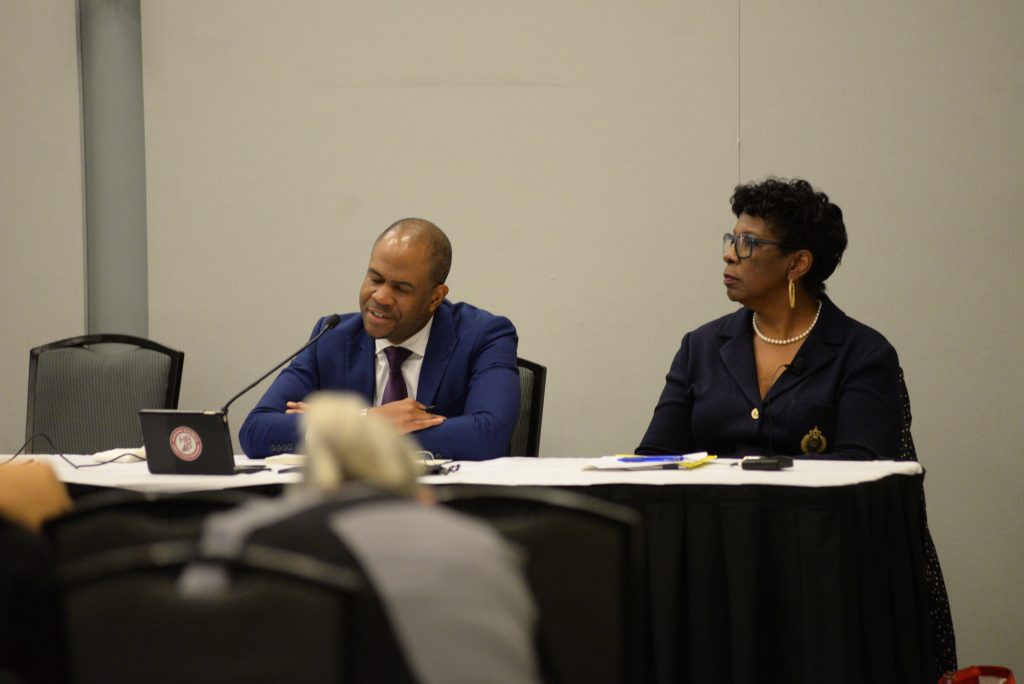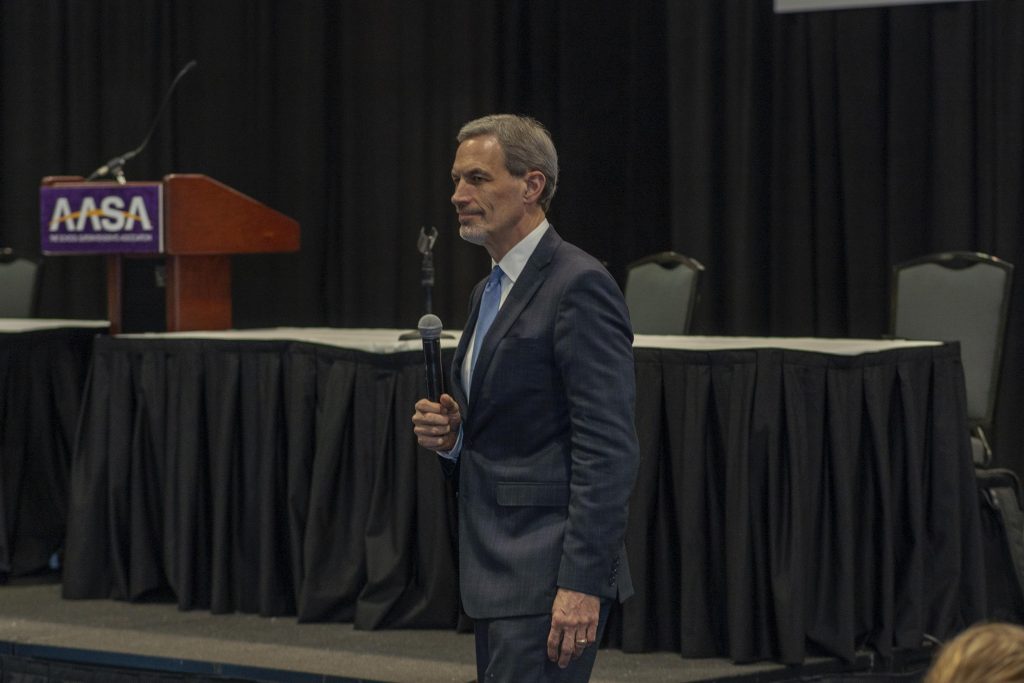Tom Vander Ark, CEO of Getting Smart, a company specializing in education innovation, moderated a panel of superintendents on the topic of students co-authoring their education.
Vander Ark was joined Thursday at the AASA national conference by Michael Conner, superintendent of Middletown Public Schools in Middletown, Conn., and M. Ann Levett, superintendent of the Savannah-Chatham County Public School System in Savannah, Ga.
The panel members defined co-authoring, noted its benefits and explored ways to incorporate it into K-12 schooling.
To begin the session, Vander Ark described the idea of co-authoring as “inviting learners in to shape goals, to co-construct learning experiences and to make decisions about learning pathways.” He asked his fellow panelists to describe how co-authoring has been addressed as a major component of AASA’s Learning 2025 initiative.
Conner and Levett spoke about the benefits of the practice, including increased engagement, motivation and initiative in their students.
The majority of the conversation, however, revolved around approaches to incorporating co-authoring into schools.
Levett suggested engaging in conversations with students about their learning styles and individual goals as well as redefining a teacher’s role as a facilitator instead of a lecturer. She also cited her experience as a speech pathologist to advocate for applying the special education model of adapting education to the student.
Conner suggested reconditioning teachers to use more technology and schools develop career centers that offer internships in the community for students for learning about careers.

Members of the audience engaged with the panelists through their own experiences. Some advocated for legislative action that would not preventing teachers from experimenting with this style, while others suggested letting students choose their own materials, such as textbooks.
The conference concluded with Conner and Levett offering advice for administrators who would like to incorporate co-authoring into their schools. Conner recommended that eager participants “start small,” while Levett encouraged the audience to identify what programs their schools already have in place that foster this concept and to build on them.
Conner mentioned the COVID-19 pandemic has exposed the flaws in education, specifically ones that disproportionally impact low-income students. He urged the audience to realize the time is now to revamp the education system to include more student involvement in their own learning journey.
(Ava Sjursen is an intern reporting with Conference Daily Online and a junior at Harpeth Hall in Nashville.)


